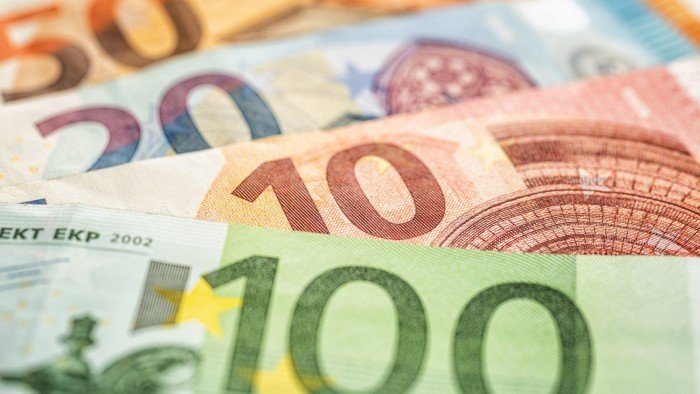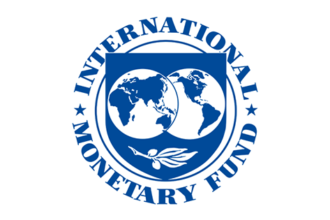Unlock the Editor’s Digest for free
Roula Khalaf, Editor of the FT, selects her favourite stories in this weekly newsletter.
France has lobbied fellow EU countries to pledge additional measures aimed at raising the euro’s profile as a global reserve currency, as part of Paris’ long-standing campaign for more joint borrowing.
A draft EU statement circulated ahead of a leaders’ summit later this month, seen by the Financial Times, asks the bloc’s institutions including the European Central Bank “to explore actions to reinforce the international role of the euro”.
The push was prompted by US President Donald Trump’s erratic trade and economic policy, which has weakened the dollar’s dominant role, opening up space for the Eurozone’s 25-year-old currency to become more attractive for international transactions.
Paris argues that investors are looking for a safe haven from US Treasury debt, so the EU should issue more joint debt to service the market, according to officials familiar with its thinking.
France and other heavily indebted countries, including Italy and Spain, have long pushed for more common borrowing in order to be able to spend more on priorities such as defence without adding to their national burden.
“There is a great opportunity for the euro to play a bigger role globally,” said IMF managing director Kristalina Georgieva at a meeting of EU finance ministers in Luxembourg on Thursday.
“When I look at the search for quality safe assets, at this point it is facing a constraint on the offering of these assets. It is not by chance that so much now is being parked in gold,” Georgieva added, in reference to ECB data showing that gold has overtaken the euro as reserve asset for central banks.
ECB president Christine Lagarde wrote in the FT this week that this was “a ‘global euro’ moment”, although the bloc would need to reform to seize it, including by creating an “ample supply of safe assets”.
“Despite a strong aggregate fiscal position, with a debt-to-GDP ratio of 89 per cent compared with 124 per cent in the US — the supply of high-quality safe assets is lagging behind,” Lagarde wrote. “Recent estimates suggest outstanding sovereign bonds with at least a AA rating amount to just under 50 per cent of GDP in the EU, versus over 100 per cent in the US.”
An EU official said this was a “classic Lagarde move, pitching French ideas” such as joint borrowing.
Philip Lane, the ECB’s chief economist, said in a speech earlier this month that the design of the euro area had resulted in an “undersupply of safe assets” and that one way of responding to this would be by issuing fresh common bonds to fund European-wide projects.
However another option would entail generating “a larger stock of safe assets from the current stock of national bonds,” he said. He cited a paper by Olivier Blanchard of the Peterson Institute and Ángel Ubide of Citadel that proposes replacing a proportion of bonds issued by individual European governments with Eurobonds.
The decision to issue more joint EU debt can only be taken unanimously. Germany and the Netherlands, who would have to pay back a greater share of the debt, are staunchly opposed to more common borrowing.
A senior EU diplomat said the commission will take into account Berlin’s opposition. But if the situation deteriorates “pressure will grow especially as some member states’ economy is in — well — not so good condition”.
The EU is already struggling to repay the almost €800bn of common debt it issued during the Covid-19 pandemic to fund economic stimulus.
The European Commission estimates €30bn per year, or a fifth of the budget from 2028, will be spent on repayments, unless it refinances the debt. France says that issuing more debt on top would create enough liquidity to tempt investors, according to two people familiar with the matter.
“If more member states got their credit rating up, there would be no shortage of euro denominated safe assets,” said an EU diplomat.
A spokesperson for the French permanent representation in Brussels declined to comment.
European Council President António Costa, who will chair the June 26-27 summit, has put the role of the euro on the agenda as part of a broader discussion about deepening the bloc’s still fragmented single market amid the current geopolitical turmoil.
Costa told the Financial Times that better integration of the single market and cross-EU rules on savings and investments would “reinforce the euro’s global standing, building on the EU’s position as an open, stable, and reliable partner”.
The dollar’s role was already diminishing before Trump took office. At the end of 2024, the dollar accounted for 58 per cent of global foreign exchange reserves, down from 65 per cent 10 years before, according to think-tank Chatham House.
The euro currently accounts for around 19 per cent of foreign exchange reserves, according to the IMF, a similar level to 2000 when it was created.
Additional reporting by Sam Fleming in London





















